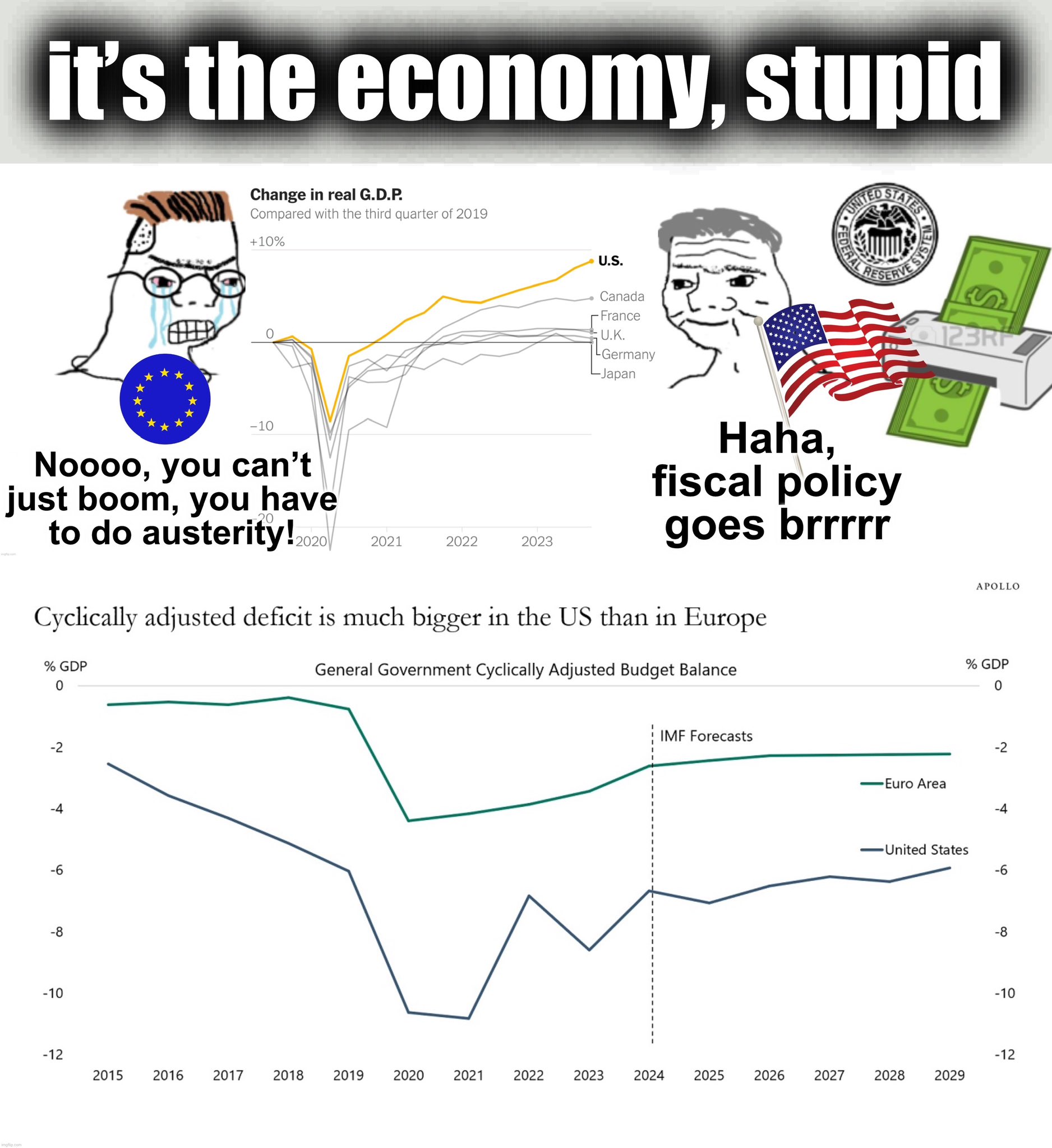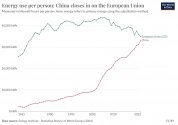Does the US conduct any expansionary fiscal operation anymore? Roughly speaking printing money is a monetary operation. But the US EU and China don’t face the same challenge at all, I don’t think it is appropriate to conflate the three.I mean, are we sure we need to deleverage? Deflation makes the company sentiment in China atrocious. The real estate has already fallen to about 18% of GDP from 25% and we don't need any more deleveraging in real estate. The floor sold is below the replacement level, so it will grow a bit higher anyway when the prices stop falling. And if we do stimulus we don't need to put it in real estate.
Years before I was advocating that more public debt is bad along with the Austrian School of Economics thought etc. however when I started reading more and more about the MMT theory and looked at its results, I said, damn, how the heck it's working, and the real-life show that's its working. If its working then do it.
Europe went with Austerity and its results are atrocious, The USA goes with "dollars go brr" and even though total debt is growing, as a debt percent of GDP is falling or staying the same.
My conclusion is that fiscal Austerity is not a good answer for China.


the housing bubble in China was the result of a massive expansionary fiscal operation by the Chinese government in 2008 at the request of the US government. For years, the Chinese economy was overheated because of all those hot money being trapped inside China, there were a lot wasteful projects during those years, like ghost cities and huge empty train stations in the arse end of nowhere. This is why the Chinese government is cautious about large fiscal operations, the Chinese economy is a semi closed economy due to the impossible trinity, it is more difficult for the economy to return to an equilibrium

